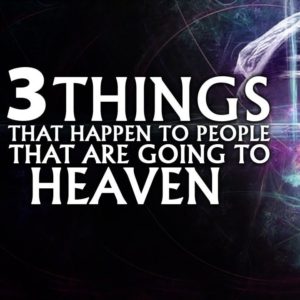
Does God love some and hate others? And has He set their destiny and fate so that ultimately there is nothing they can do one way or the other to determine the course of their lives? In effect, those bound for heaven will get there, and those bound for hell will get there.
I was just reading the Westminster Confessional and it’s statements about God’s eternal decree. Troubling.
It’s 3:41 AM. These are matters that come into my mind in the middle of the night when I wake up and lay in bed awake.
The Westminster Confessional
Chapter III
Of God’s Eternal Decree
I. God from all eternity, did, by the most wise and holy counsel of his own will, freely, and unchangeably ordain whatsoever comes to pass; yet so, as thereby neither is God the author of sin, nor is violence offered to the will of the creatures; nor is the liberty or contingency of second causes taken away, but rather established.
II. Although God knows whatsoever may or can come to pass upon all supposed conditions; yet has he not decreed anything because he foresaw it as future, or as that which would come to pass upon such conditions.
III. By the decree of God, for the manifestation of his glory, some men and angels are predestinated unto everlasting life; and others foreordained to everlasting death.
IV. These angels and men, thus predestinated, and foreordained, are particularly and unchangeably designed, and their number so certain and definite, that it cannot be either increased or diminished.
V. Those of mankind that are predestinated unto life, God, before the foundation of the world was laid, according to his eternal and immutable purpose, and the secret counsel and good pleasure of his will, has chosen, in Christ, unto everlasting glory, out of his mere free grace and love, without any foresight of faith, or good works, or perseverance in either of them, or any other thing in the creature, as conditions, or causes moving Him thereunto; and all to the praise of his glorious grace.
VI. As God has appointed the elect unto glory, so has He, by the eternal and most free purpose of his will, foreordained all the means thereunto. Wherefore, they who are elected, being fallen in Adam, are redeemed by Christ, are effectually called unto faith in Christ by his Spirit working in due season, are justified, adopted, sanctified, and kept by his power, through faith, unto salvation. Neither are any other redeemed by Christ, effectually called, justified, adopted, sanctified, and saved, but the elect only.
VII. The rest of mankind God was pleased, according to the unsearchable counsel of his own will, whereby he extends or withholds mercy, as he pleases, for the glory of his sovereign power over his creatures, to pass by; and to ordain them to dishonor and wrath for their sin, to the praise of his glorious justice.
VIII. The doctrine of this high mystery of predestination is to be handled with special prudence and care, that men, attending the will of God revealed in his Word, and yielding obedience thereunto, may, from the certainty of their effectual vocation, be assured of their eternal election. So shall this doctrine afford matter of praise, reverence, and admiration of God; and of humility, diligence, and abundant consolation to all that sincerely obey the Gospel.
It’s also worth considering the following excerpt from Wikipedia…
Proximate and ultimate causation
A proximate cause is an event which is closest to, or immediately responsible for causing, some observed result. This exists in contrast to a higher-level ultimate cause (or distal cause) which is usually thought of as the “real” reason something occurred.
Example: Why did the ship sink?
– Proximate cause: Because it was holed beneath the waterline, water entered the hull and the ship became denser than the water which supported it, so it could not stay afloat.
– Ultimate cause: Because the ship hit a rock which tore open the hole in the ship’s hull.
In most situations, an ultimate cause may itself be a proximate cause for a further ultimate cause. Hence we can continue the above example as follows:
Example: Why did the ship hit the rock?
– Proximate cause: Because the ship failed to change course to avoid it.
– Ultimate cause: Because the ship was under autopilot and the autopilot’s data was inaccurate.
– (even stronger): Because the shipwrights made mistakes in the ship’s construction.
– (stronger yet): Because the scheduling of labor at the shipyard allows for very little rest.
– (in absurdum): Because the shipyard’s owners have very small profit margins in an ever-shrinking market.
– Wikipedia
Why we decide as we do is a matter that we all really need to understand. And if our lives are determined then it may not be possible that we all understand. It seems that only a few are allowed to see the strings.
We are all puppets at the end of strings.
“A puppet is free as long as he loves his strings.”
– Sam Harris, Free Will
For God hath put in their hearts to fulfil his will, and to agree, and give their kingdom unto the beast, until the words of God shall be fulfilled.
– Revelation 17:17 King James Version (KJV)
“We’re all puppets, Laurie. I’m just a puppet who can see the strings.”
– Alan Moore, Watchmen




Comments